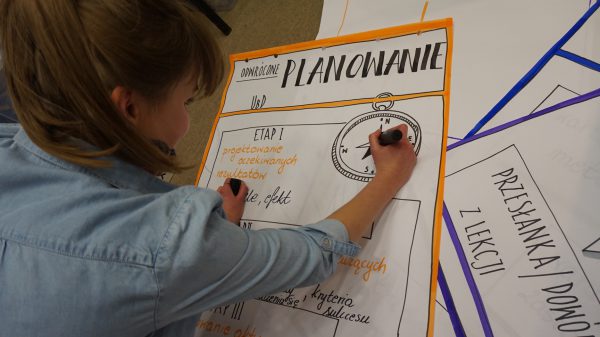There are elements of historical and civic education that should always or almost always appear in lessons. The Seven Virtues of a History Teacher and WOS are presented by Dr. Jakub Lorenc, an experienced teacher and lecturer at the PAFF Faculty of Education and the University of Warsaw.
Wise planning for each lesson is one of the most important skills we teach our students education schools – Not only historians, but also Polish biologists, philologists and mathematicians. Of course, each specialty has its own peculiarity, and I focus on the so-called EHO, that is, historical and civic education. On a daily basis, we mainly work with graduates of faculties of history who have no experience working with young people, although there are also among us who have already stood in front of a class full of students.
When planning each lesson in history and social studies, we must make sure that the tasks proposed to students meet several basic conditions. The point is not that each category should include all the items from the list below – that would be very difficult and often inefficient. However, it is worth considering at least 3 points in each category. Lessons that are least relevant to the next lesson must appear in one of the next two lessons.
History Lesson and WOS – Essential Elements
Each item on this list is important to the success of history education and should appear regularly in our classrooms.
1. Subjects that students and students work on. These can be, for example, historical sources (not only written), historical texts, press materials, etc.
2. Reference to the present day and the student world. Most importantly, it should be the result of the student’s work, not served on a tray. Let the young researchers discover some dependencies themselves.
3. A task that requires temporal thinking (anchoring in time). It can also be an integral component of a task from a domain other than chronology.
4. A space for students to ask questions – they don’t have to be questions directed at the teacher. Let the children ask each other questions. Asking questions and looking for answers is more important than answering them.
5. Space for your opinions and judgments. Students must formulate it not only on the basis of their knowledge, but also on the basis of their intuition. Creative problem solving is one of the most important skills that school can give us!
6. A space for students to discuss their opinions.
7. The elements of cooperation with peers. There are many ways to do this: working in pairs and in groups, as well as, for example, the T&T method – that is, “turn around and talk”.
The order in the list does not matter – all the items are of equal importance in history and civics. It is important to use it regularly and creatively!
How do you learn to plan history lessons and WOS?
The question of planning lessons and classroom blocks takes very little time in history studies (if it arises at all, because not everyone decides to major in teaching). After all, well-planned classes significantly increase the chances of success for a particular lesson and the entire educational process. How do you learn it?
Of course, the basis is knowledge of the field, but also psychological and pedagogical knowledge, which will help us adapt materials and methods to the abilities of students. Teaching is sure to help a lot as well. Working with a well-developed teacher who demonstrates lesson outline strengths, draws attention to potential challenges and threats, and asks key questions about goals and impacts – this is invaluable experience in history teacher development and WOS.
If you want to learn this art in a safe environment, where the educational workshop is improved by trial and error, I recommend you to graduate in school of education. Not only does it give you the ability to teach history, but it really prepares you for any educational and learning challenges. In addition, it is completely free and gives future history teachers the opportunity to get a high scholarship and free dormitory in Warsaw. Advantages only!
Dr. Jacob Lorenc – Teacher of history and knowledge about society. Lecturer in history education and teacher at the College of Education
School of Pedagogy of the Polish American Freedom Foundation and the University of Warsaw It conducts daily free postgraduate studies for teachers – prospective and active. Studies grant teaching qualifications and develop educational and teaching competencies. The Faculty of Education teaches four tracks: Polish Language, History and WOS, Biology with Nature, and Mathematics.
The article was written in collaboration with Szkolaedukacji.pl

“Music specialist. Pop culture trailblazer. Problem solver. Internet advocate.”







